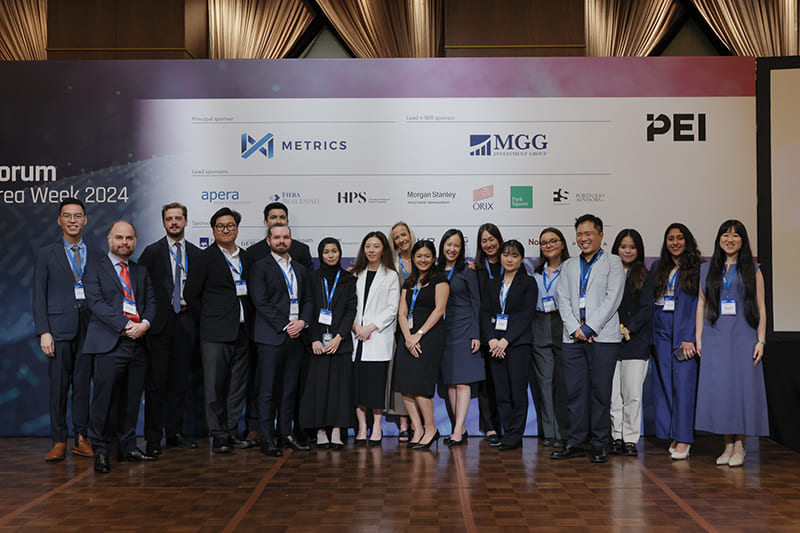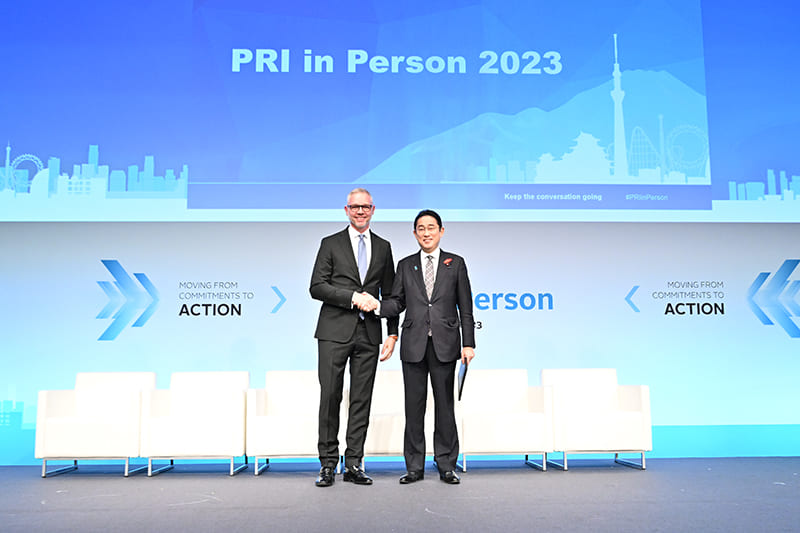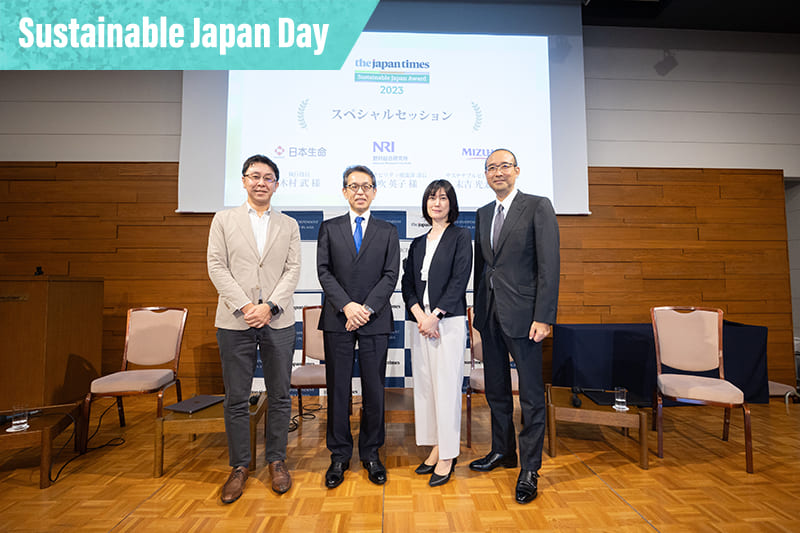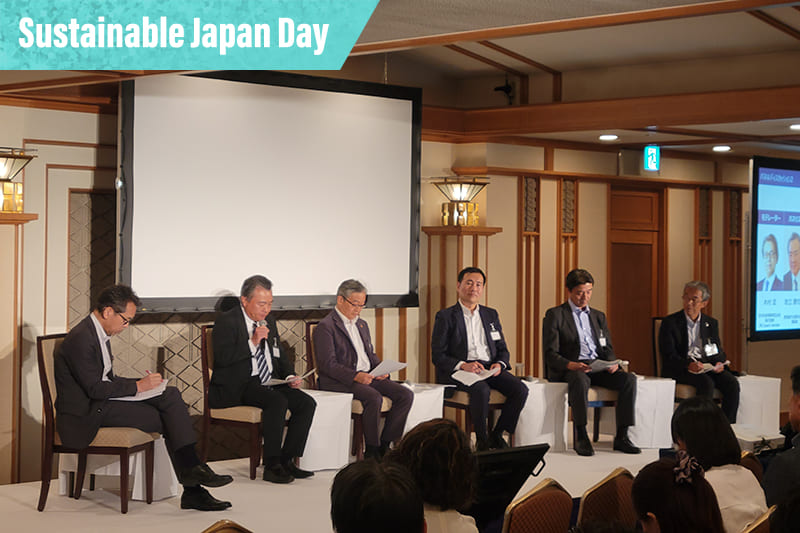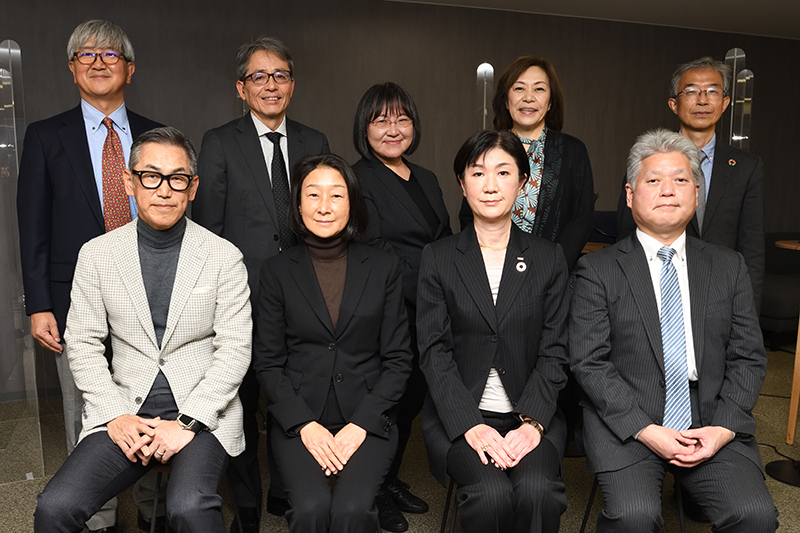June 21, 2024
Driving more institutional capital toward sustainable investment
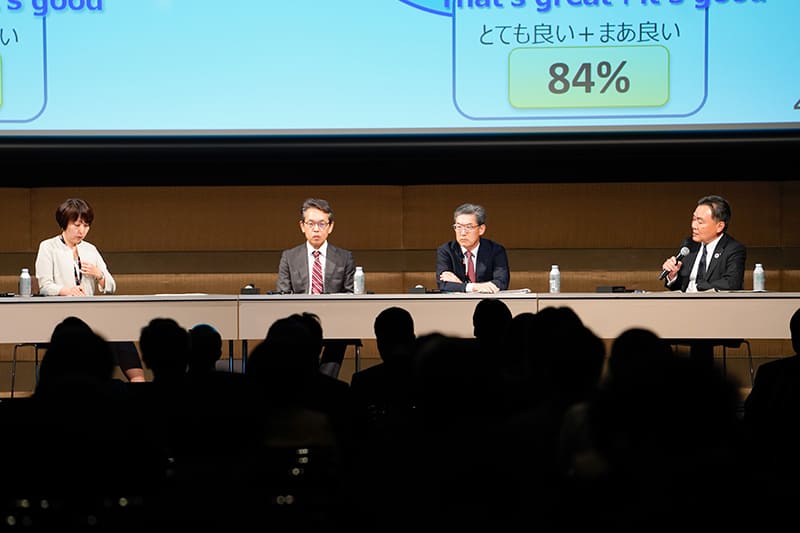
The last session on the second day of the RI Japan event was plenary 7, which focused on what Japan can do to attract more institutional capital into sustainable investment amid a global sense of emergency that something must be done to solve climate and social issues for the sake of our future. Joining the session were Yoko Monoe, a senior consultant at Mercer and the moderator of the session, Takeshi Kimura, a special adviser to the board at Nippon Life Insurance, Hiroyuki Nomura, an operating officer and senior general manager at Japan Post Insurance, and Yasunari Iwatate, the executive director for Higo Bank, who is also the chairman of the Higo Corporate Bank Pension Fund.
The latest statistics show an increasing trend toward sustainable investment except in the United States, which is suffering from a backlash over environmental, social and governance (ESG) issues. According to the Global Sustainable Investment Alliance’s latest report, the overall sustainable investment in 2022 reached $30 trillion, up 20% from 2020. In Japan it rose 59%, extending a rising trend since 2016, said Monoe. She said many countries define sustainable investment as including engagement activities, implementation of shareholder rights, ESG integration policy and “negative screening,” which excludes potential investee companies that do not meet investment criteria.
The agenda of the panel discussion gained a spotlight because asset management reform is one of the major pillars of Prime Minister Fumio Kishida’s strategy released last year to improve the governance of asset managers and owners and encourage new entrants to spur competition.
Asked by the moderator about any recent changes in asset owners’ investment stances on sustainability issues, Kimura said a trend is emerging among institutional investors to take a more proactive approach in helping to create a better future society.
“In the last few years, there has been a shift to a so-called ‘inside-out’ investment approach, from the ‘outside-in’ approach that used to be the main one,” he said.
In the past, the mainstream strategy for sustainable investment was to analyze companies’ future risks and opportunities in case global warming accelerated. Investors also required companies to disclose nonfinancial information related to ESG issues. As for hard-to-abate sectors like steel and chemicals, investors urge companies to collaborate on the pathway to net-zero emissions through transition finance.
In the “inside-out” investment approach, on the other hand, what is important is “field building” to consolidate a foundation that makes it easier for all parties related to investments to take action, Kimura said. “This means urging stakeholders to make changes to achieve best practices for society and investment,” he added.
For example, policy engagement such as signing the United Nations-backed Principles for Responsible Investment is part of field building, said Kimura, who is also a PRI board director. PRI is a voluntary set of principles for institutional investors to help incorporate ESG issues into investment decisions.
Nomura said he feels the need to do a reality check now that the ESG investment approach has spread widely among institutional investors.
“In Japan, ESG integration has become standard,” Nomura said. “However, I’m not sure if the investment had an impact on the achievement of the SDGs (the U.N.’s sustainable development goals) and the creation of innovation and contributions to technological development that could help address social issues and create an evolution of business models.”
Therefore, Japan Post Insurance took a step further from the conventional ESG investment approach and in 2022 started to increase “impact-driven investment,” which aims to directly contribute to the creation of impacts that help lead to solutions to social issues. Another new step is to collaborate with academic research promising huge technological developments and broaden investment in startups born on campus.
“We plan to actively work on the realization of a sustainable society, the achievement of the SDGs and the activation of capital markets while securing stable profits from the standpoint of a responsible investor,” Nomura said.
Compared to giant life insurers such as Nippon Life and Japan Post, smaller entities have different issues. Iwatate said that one of their problems is a lack of human resources. To overcome this, Higo Bank, one of the local Japanese banks that actively promote sustainability, uses such investments to support its corporate pension fund, he said, adding that 55% of its pension fund currently stays in ESG investment.
Nippon Life’s Kimura said that whether the country’s asset management reform succeeds or not depends on how much each asset owner understands the reason for the government reform. “What is most important for asset owners is to think about what the maximum benefit for fiduciaries is,” he said. “In order to do that, the top of the list is to listen to the voice of citizens, or in this case, fiduciaries.”
“What they want is not only an economic return. They want their pension fund to contribute to the achievement of the SDGs and solutions to social issues,” Kimura said.
Aiming to highlight issues related to a sustainable society, The Japan Times gave its support to this event by becoming a media partner.

